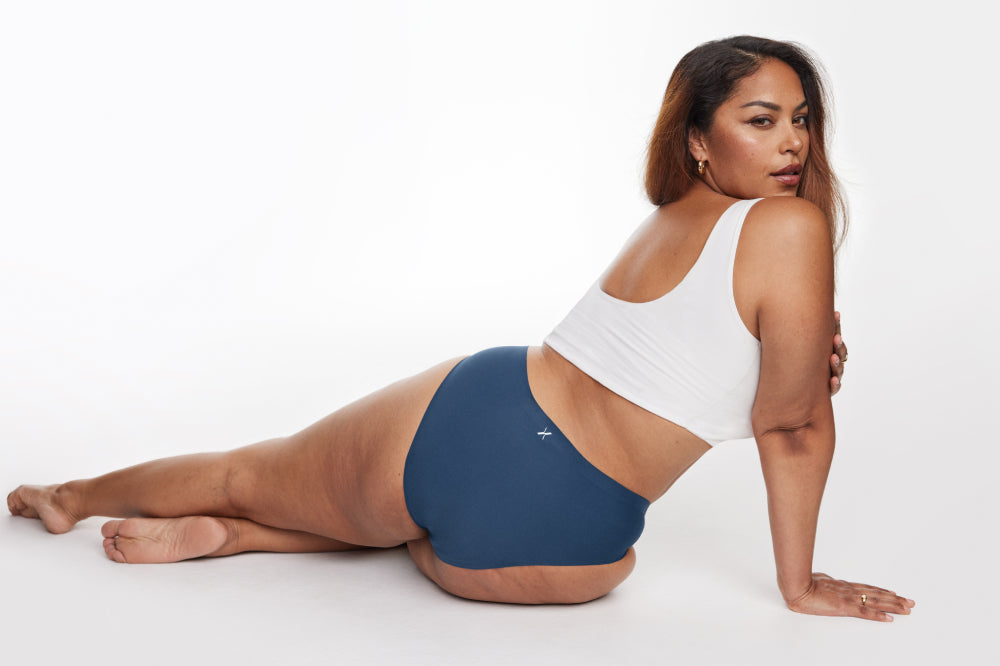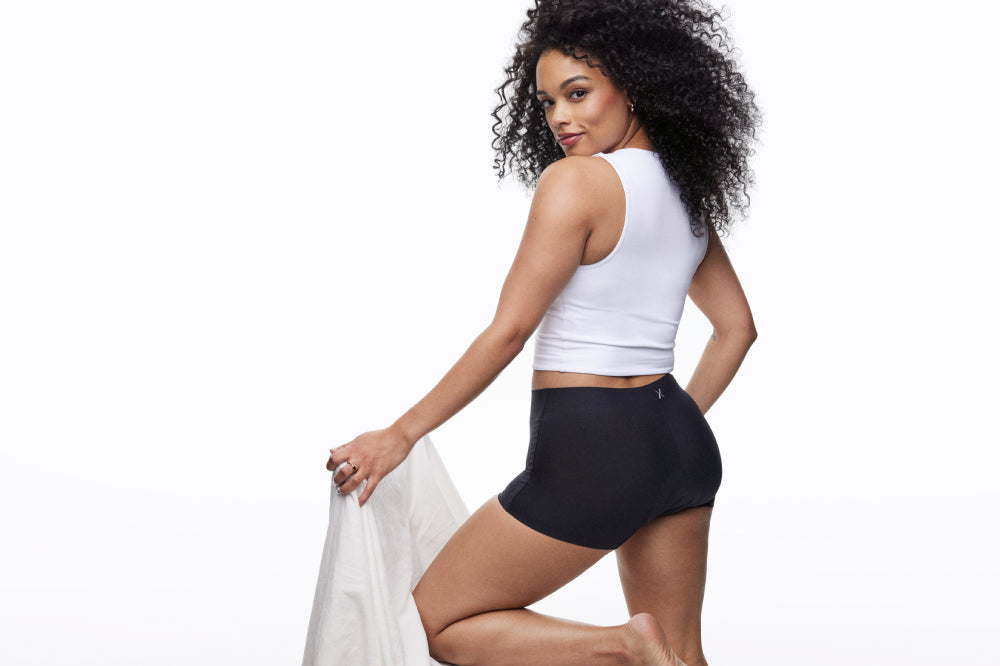Move with Confidence: Why You're Experiencing Bladder Leaks During Exercise
This article was medically reviewed by Dr. Navya Mysore and updated on March 8, 2024
Nobody wants their bladder to leak involuntarily at any time, but exercise can be a major stressor on the bladder. After all, you want to be able to push your body to perform without being held back by fear that your bladder might leak.
Whether you’re a pro-athlete, a high impact trainer or an occasional exerciser, urine leakage during exercise can happen. This isn’t about how strong you are, or your fitness levels. When your bladder leaks it may leave you feeling embarrassed, but it’s important to know you’re not alone and there are steps you can take to manage it.
But first, let’s look at what could be happening when you experience urine leakage during exercise.
The Culprit Is Likely Stress Incontinence

There are many different forms of urine incontinence that can affect women. But if you’re experiencing involuntary urine leakage when exercising, it is very likely to be caused by stress urinary incontinence (SUI).
SUI is the most common reason for bladder leakage amongst women. It affects an estimated 15 million adult women in the U.S.
You should see your healthcare provider so you can review your symptoms and they can perform an exam so you can correctly be diagnosed with SUI—as there are many potential reasons why women experience bladder leakage.
Some possible causes include childbirth, trauma from surgery (like a hysterectomy), weak bladder and pelvic floor muscles, as well as menopause.
What Is Stress Incontinence?
If you’ve ever peed a little when you’ve:
- Laughed
- Sneezed
- Coughed
- Exercised
- Had sexual intercourse
- Lifted something heavy or bent over
… those are symptoms of SUI. It occurs when the body exerts itself and the muscles of your bladder and pelvic floor become compromised or less effective at doing their job, which includes holding in your urine.
Keep in mind that those of us who haven't gone through childbirth are also at risk: Bladder leakage can also be caused by any surgery that impacts the muscles of the pelvic floor, including hysterectomy.
Moreover, damage to muscles is just one dimension. If your pelvic floor muscles are weak due to lack of exercise or just general aging, you may also experience bladder leakage. This is why pelvic floor exercises are widely recommended for all women, no matter what age.
What About Mixed Incontinence?
Another possible explanation of urinary leakage when exercising is mixed incontinence, which is a combination of stress and urge incontinence. Urge incontinence is the second most common form of involuntary urine leakage in women.
Some possible causes of urge incontinence include infection, inflammation of the bladder, uncontrolled diabetes, weakness of the bladder muscles, as well as the same causes as stress incontinence.
Are you a runner? Incontinence when running is more common than you think.
What Can I Do About Leaking While Exercising?
Urinary leakage while you exercise can certainly be inconvenient and cause embarrassment. At worst, it could discourage you from exercise altogether. This isn’t ideal since exercise is so key to both our physical and emotional wellbeing, bringing numerous benefits to both body and mind.
So what are some things you can do to prevent urinary leakage during your favorite exercise routine?
Switch to Leakproof Underwear When Exercising
This is an easy and immediate change. It won’t solve the urine leak, but it will protect your clothing and keep you dry. What’s more Leakproof incontinence underwear has come a long way! You probably won’t even notice the difference between your favorite underwear and Leakproof Underwear.
High absorbency Leakproof Underwear is a solid choice—it absorbs not just urine, but period blood and sweat. Products like these can be a game changer for those experiencing bladder leakage, allowing them to remain active and social while exploring treatment options for urinary leakage.
Ever wonder about rubber incontinence pants? We've got you covered.
Add Kegel Exercises to Your Workout
Kegel exercises or pelvic floor muscle exercises strengthen your pelvic floor, which support the uterus, bladder, small intestine and rectum. For those of you who already devote time to exercise: Kegel exercises and pelvic floor exercises can be done any time, either sitting or lying down. You can even do Kegel exercises when you are eating, sitting at your desk or watching TV.
If you’re unsure how to do Kegel exercises, it’s like pretending you have to urinate and then holding it. You relax and tighten the muscles that control urine flow of the pelvic floor.
One way to learn the muscles you should activate is to pay attention when you pee: Start to urinate and then stop. You should feel the muscles in your vagina, bladder, and anus get tight and move up. These are the pelvic floor muscles.
When you are unsure how to do these strengthening exercises, it’s always a good idea to see a pelvic floor physical therapist. They can also be very helpful in diagnosing any pelvic floor issues you may have and can facilitate a treatment plan.
Talk to Your Doctor
Of course, it goes without saying that you should also talk to your doctor. Your doctor will be able to work with you to provide an accurate diagnosis of the type of incontinence you’re experiencing and help come up with a treatment plan.
More than that, your doctor will be able to help you explore long term treatment options if your incontinence is not improved by Kegel exercises, lifestyle changes, pelvic floor physical therapy.
Sources:
https://www.healthline.com/health/urinary-incontinence/incontinence-when-exercising
https://www.ncbi.nlm.nih.gov/books/NBK539769/
https://www.ncbi.nlm.nih.gov/pmc/articles/PMC1472862/
https://www.ucsfhealth.org/conditions/mixed-incontinence-in-women
https://www.mayoclinic.org/healthy-lifestyle/womens-health/in-depth/kegel-exercises/art-20045283
—
We hope you found this post informative — but remember: we’re not doctors and this post is not medical advice! While all posts are fact-checked and well researched, we always recommend you chat with your doctor about any questions or concerns you might have regarding a medical condition. We’re here to support and educate, but never with the aim of disregarding professional medical advice you’ve been given. Phew, now that that’s out of the way, you can go on living unapologetically free.

